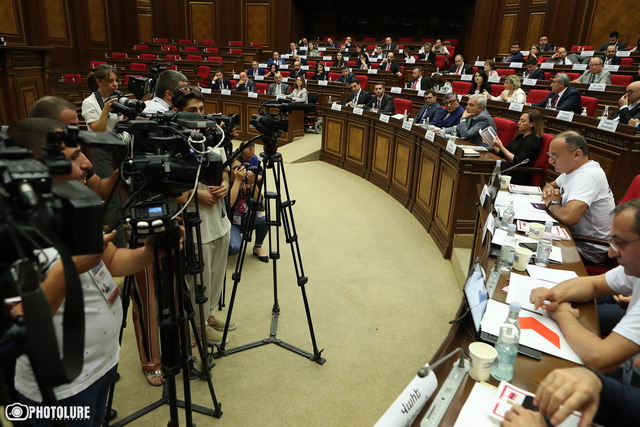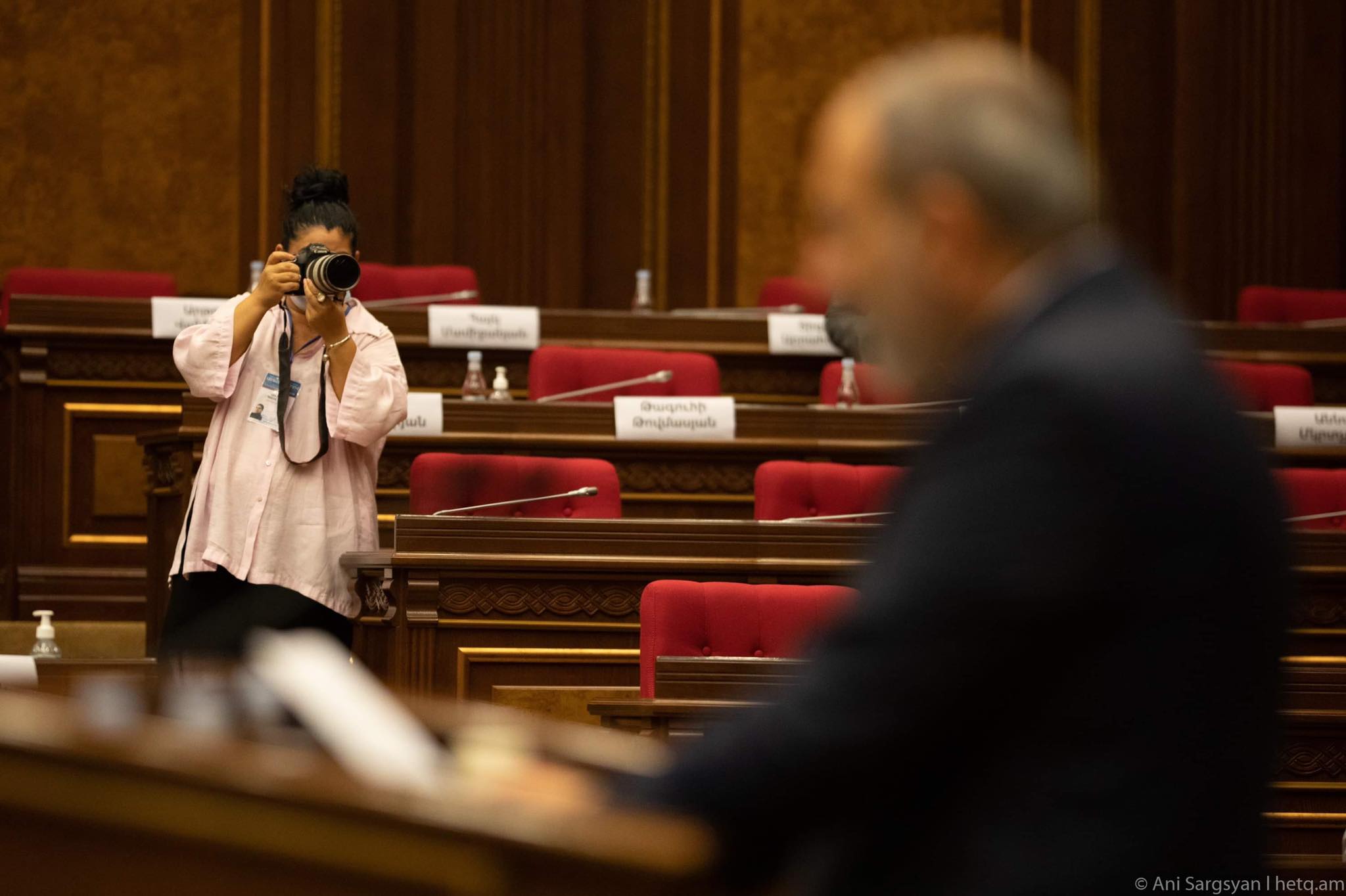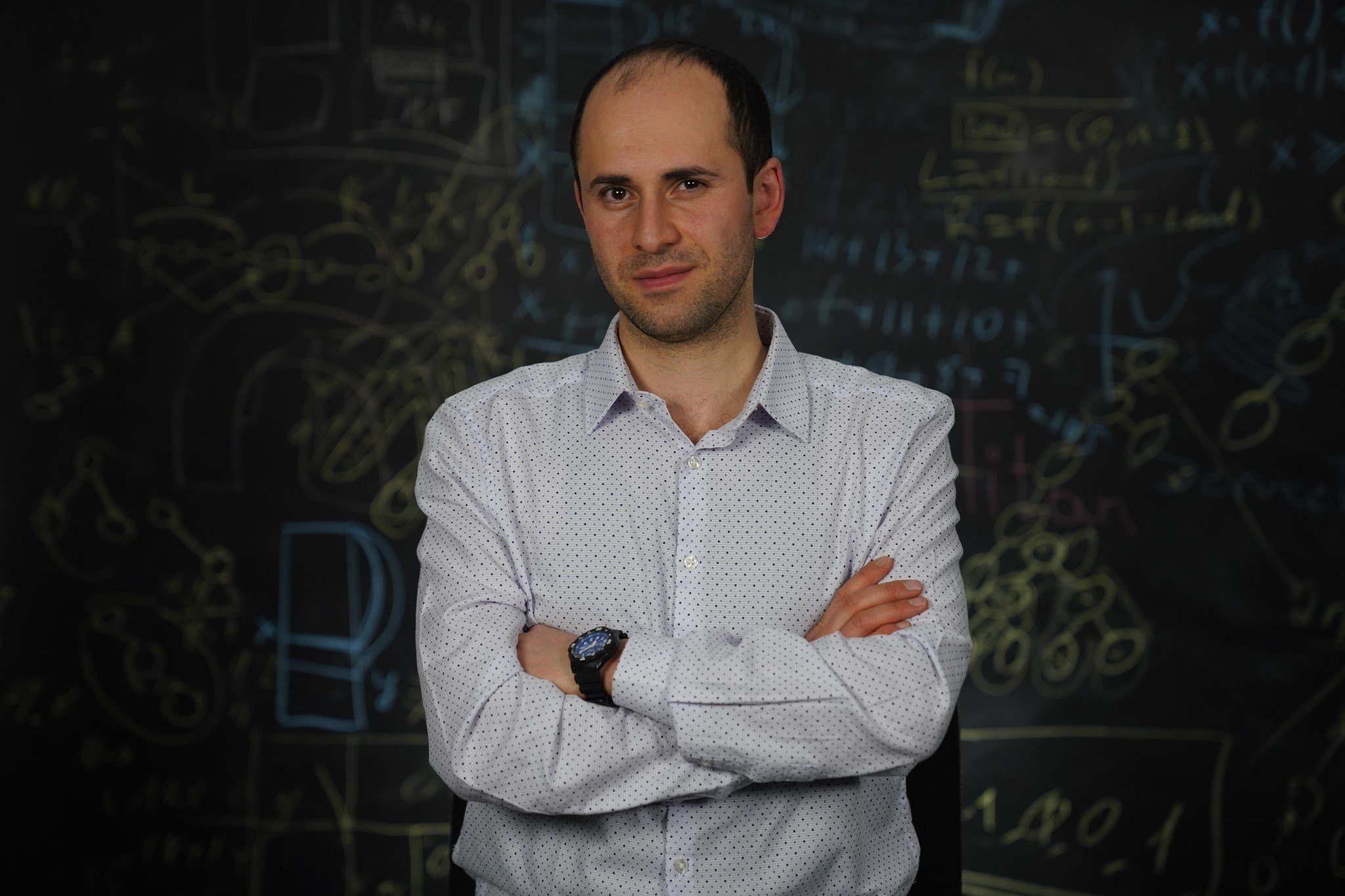
From now on, journalists accredited in the National Assembly have a territorial restriction, they cannot work and conduct interviews in the corridors of the National Assembly, in the sitting hall, in the territory of the offices of the factions, etc.
The new regulation stipulates that “journalists accredited to the National Assembly shall carry out their professional activities in designated special places, and may carry out professional activities in places other than designated special places only with the permission of the Secretary-General of the National Assembly.”
Panorama.am photographer Lilian Galstyan, has a great experience of working in the National Assembly, however recently, she was almost deprived of the opportunity to work in that state structure. The National Assembly sent a notification to the editorial office that their photographer had violated the law and was deprived of her credentials.

Lilian Galstyan
The reason is that she had photographed how the security officers carried out intensified control in the area of the National Assembly, thoroughly checking the journalists’ belongings. Lilian considered that it was important and unprecedented information for the audience and decided to share it with photos.
Lilian was not aware that there was a change in the regulations, according to which it is forbidden to record, video or photograph security guards during their professional activities in the area of the protected object, including at the checkpoints.
In a conversation with Media.am, she confessed that if the incident that had not happened had not had great public resonance, she would hardly have been able to return to the National Assembly and carry out professional activities.
“I do not see any political context in what happened, they just changed the law and decided that with my photos of that day I had broken the law by showing the work of the security officers at the checkpoint and their faces. Honestly, I was not aware of that law, besides, the security officers did not seem to mind me taking photos of them,” she said.
According to her, if at that moment they noticed that she was violating the law, they should have approached her, informed her about the changes and asked her to follow them, and not sent a notification to the editorial office that she was deprived of the opportunity to cover the National Assembly.
The purpose of these restrictions, according to Lilian, is not clear, in fact, it is not as though journalists will not be able to get the information they need, “As a photographer, I have the same rights as before, the opportunity to take photos for about half an hour at the beginning of the sessions, to attend during the speeches of special guests and during special events.”
According to the photographer, the territorial restriction can technically make it difficult to communicate with the deputies, which existed before and was very easy. According to her, for interviewing or taking photos, it is possible to arrange with the deputies in another area, the NA yard, office, specially allocated areas for this purpose.
Recently, after a well-known fight in the National Assembly, the security officers went up to a special booth for journalists and forcibly removed them from their work area.
The reason was that it was done so the journalists would not record the debate-fight in the NA session hall, although the deputies had already made public what was happening live. Later, NA Speaker Alen Simonyan said that the journalists’ work was unreasonably hindered.
Civilnet journalist Gevorg Tosunyan said that the work of journalists that day was very important for justice, what was happening was documented so that it could be examined in court later.

Gevorg Tosunyan
According to Tosunyan, such restrictions by this government are at the very least incomprehensible and unfounded, it gives the impression that they want to keep journalists away from them.
“There must be clear laws in which cases and how the work of journalists in the National Assembly can be limited, otherwise there are verbal instructions from security officers not allowing journalists to take pictures of this or that incident during the session hall.”
According to him, the journalists and cameramen who are used to posing seemingly scandalous questions and remarks in the NA corridors, videotape disputes and unpleasant dialogues will suffer from these restrictions.
“This government, which has obviously bad relations with some journalists, took the worst path, complicating everyone’s work. After the war of 2020, the government no longer wants its activities to be covered, various obstacles are being created. Contact with the media has been minimized, only the strictly official information is made public.”
The journalist said that it is not clear to them why the journalist should leave the booth during the breaks, except that it is a violation of the labor law, because the journalists are working at the moment, writing a text, publishing it, and also depriving the deputies of the opportunity of being followed in non-working conditions.
He thinks that this restriction is unlikely to have a big impact on his work because he was not in the habit of conducting group interviews in the corridors. He worked with the deputies individually and thinks that honest journalists will be able to communicate with the deputies in a civilized way and get the answers to their questions.
“The main issue that worries me is the aim of taking these steps. If strict regulations are needed, then the verbal orders given to the security officers should be worded in the National Assembly. The rules of the game must be clear and transparent for journalists, MPs and security guards,” Tosunyan said.
According to the new regulations, the journalists accredited in the National Assembly can attend the sitting of the committee with the permission of the chairman of the committee, and during the sitting, they may carry out their professional activities in a place reserved for them.
The attitude of journalists to these changes is ambiguous, they have many concerns, although international experience shows that in the parliaments of many countries there are such restrictions.
This article will help you to get acquainted with them and draw parallels between local and international experiences.
Gayane Asryan


Add new comment
Comments by Media.am readers become public after moderation. We urge our readers not to leave anonymous comments. It’s always nice to know with whom one is speaking.
We do not publish comments that contain profanities, non-normative lexicon, personal attacks or threats. We do not publish comments that spread hate.